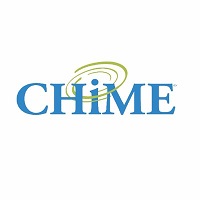 CHIME Recommends Delaying Stage 3
CHIME Recommends Delaying Stage 3
Last month a group of six Republican Senators released a public letter questioning just how and where the HITECH Act funds are being spent. In the white paper accompanying the letter, Reboot: Re-examining the Strategies Needed to Successfully Adopt Health IT, the Senators outlined their concerns over the decisions CMS and ONC have made to date in the march towards meaningful use, interoperability and health IT adoption. The College of Healthcare Information Management Executives (CHIME) responded today to each concern, making their own recommendations, and giving support to the overall progress to date of the CMS EHR Incentive Program. From the letter:
Your report highlights a number of fair and responsible criticisms of the program and it echoes many of the concerns CHIME has voiced over the last three years. But given the nation’s increased adoption of EHRs, the increased investments in interoperable solutions and the early-stage transformations encountered everyday by our members, we remain convinced that the trajectory set by Meaningful Use is the correct one.
The CHIME letter also,recommends extending Stage 2:
CHIME believes the industry’s guiding principle should be to maximize the opportunity of program success and monitor the timelines needed to do that. For this reason, we formally and strongly recommend a one-year extension to Stage 2 before progressing to Stage 3 of Meaningful Use. An extension is vital for providers, vendors and policymakers to ensure the outcomes sought in Stage 3 are realized. A year extension of Stage 2 will give providers the opportunity to optimize their EHR technology and achieve the benefits of Stage 1 and Stage 2; it will give vendors the time needed to prepare, develop and deliver needed technology to correspond with Stage 3; and it will give policymakers time to assess and evaluate programmatic trends needed to craft thoughtful Stage 3 rules.
CHIME also brings up meaningful use audits, saying audits need to focus on uncovering fraudulent activities and not honest documentation mistakes. Read the CHIME letter here.
